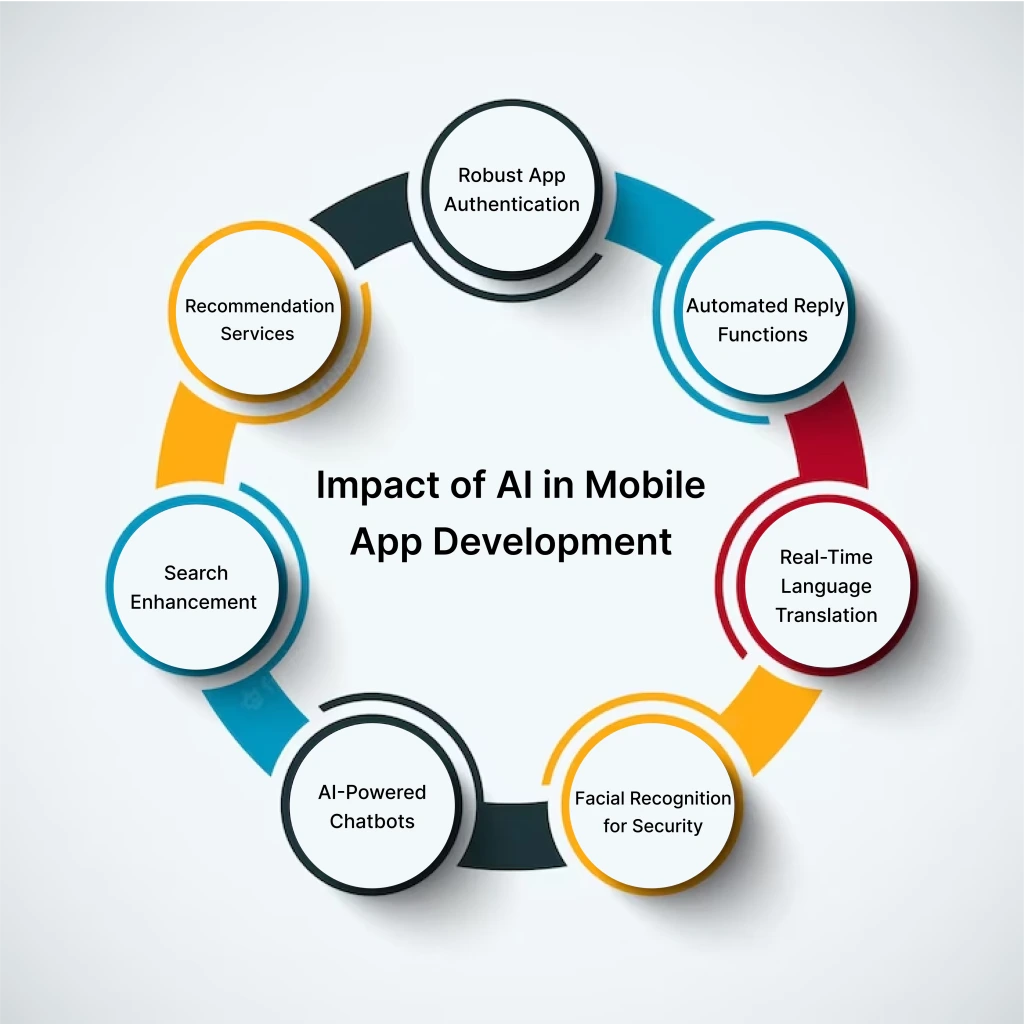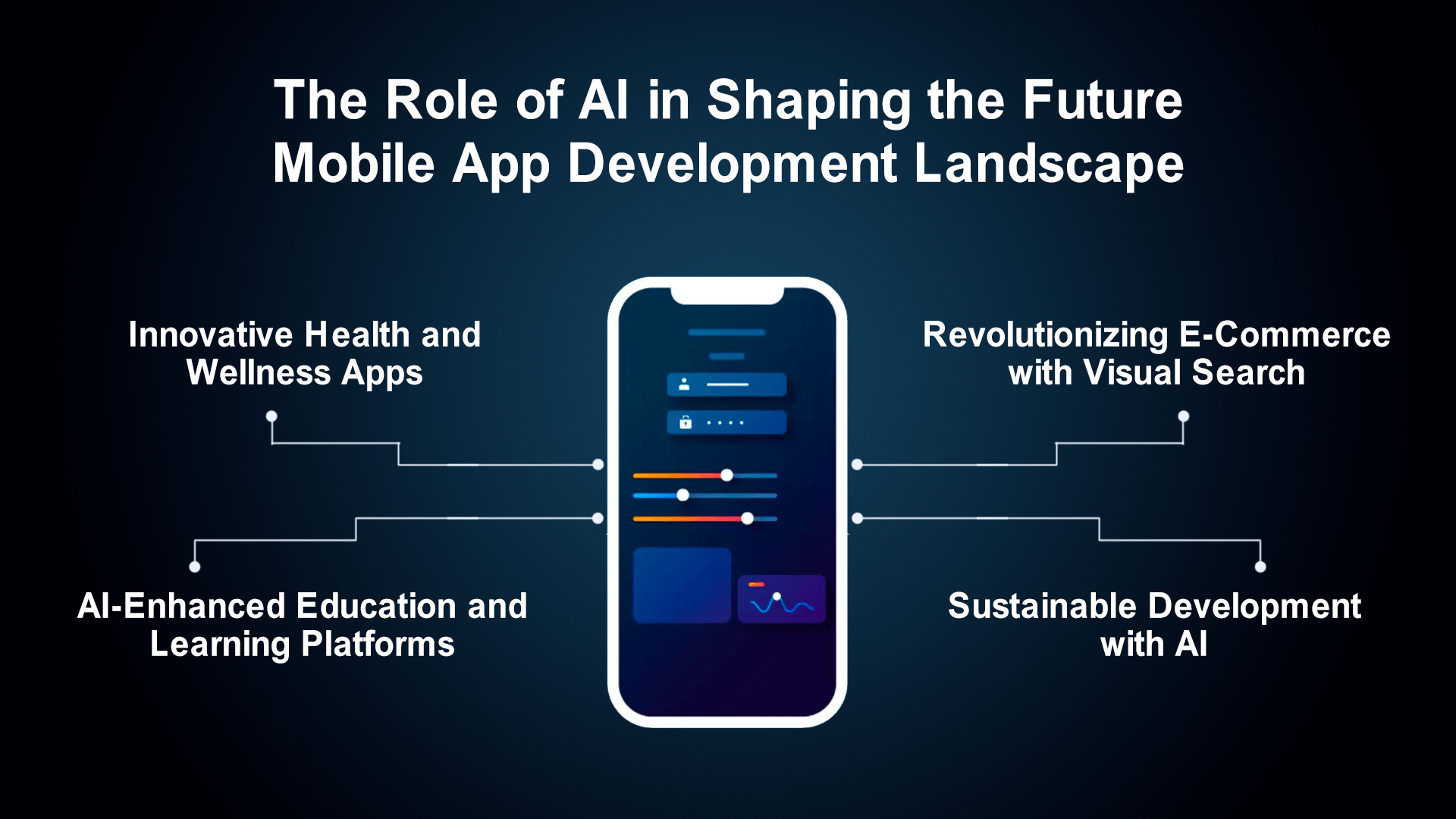AI and It's Role in Mobile App Development
Artificial intelligence (AI) is no longer a futuristic concept; it has become an integral part of our daily lives. One area where AI has made significant strides is mobile app development. By enhancing app functionality and creating more intuitive user experiences, AI has transformed how developers build and users interact with mobile apps.

How AI is Shaping Mobile App Development
1. Personalized User Experiences
AI algorithms analyze user data to create tailored experiences. Mobile apps can now predict user preferences, recommend content, and adapt interfaces dynamically, ensuring that each user feels catered to personally. For example, streaming apps like Netflix use AI to suggest shows and movies based on individual viewing habits.
2. Smarter Chatbots and Virtual Assistants
Customer support has evolved with AI-driven chatbots and virtual assistants. Apps like WhatsApp use AI chatbots to resolve queries instantly, ensuring seamless communication and boosting user satisfaction.
3. Enhanced App Security
AI plays a important role in securing mobile apps by identifying suspicious activities, preventing fraud, and enhancing authentication methods through facial recognition and biometric verification.
4. Efficient Testing and Debugging
AI simplifies the testing phase of app development by automating repetitive tasks. Machine learning models can predict potential errors, test various scenarios, and identify bugs, saving developers valuable time and resources.
5. Real-Time Translations
AI-powered translation tools are bridging the language gap. Apps like Google Translate and Duolingo use AI to offer real-time translations, making communication and learning more accessible globally.
6. Predictive Analytics
AI enables predictive analytics, allowing businesses to anticipate user behavior and needs. Apps uses this data to offer proactive solutions, such as health apps providing early warnings based on fitness trends.

The Benefits of AI in Mobile App Development
Efficiency: Automating tasks reduces development time and costs.
Scalability: AI ensures apps can adapt to growing user demands.
Improved UX: AI creates seamless, engaging experiences for users.
Data-Driven Insights: Developers can use AI to analyze user behavior and refine app features accordingly.
Challenges of Implementing AI in Mobile Apps
High Initial Costs: Integrating AI can be expensive, especially for small developers.
Privacy Concerns: AI’s reliance on user data raises questions about data security and ethical usage.
Complexity: Developing AI-powered features requires expertise in machine learning and advanced algorithms.
Bias in Algorithms: AI systems may unintentionally reinforce biases present in the training data.
The Future of AI in Mobile Apps
The involvement of AI in mobile app development is just beginning. Future advancements could include:
Hyper-Personalized Experiences: Apps that anticipate needs before users realize them.
Improved Accessibility: AI tools that make apps more inclusive for users with disabilities.
Advanced AR and VR Integration: Enhancing immersive experiences with smarter AI algorithms.
Conclusion
AI is revolutionizing mobile app development, making apps smarter, faster, and more user-centric. While challenges remain, the potential for growth and innovation is limitless. By using AI’s capabilities, developers can create groundbreaking apps that redefine user expectations and drive the future of technology. As AI continues to evolve, its role in mobile app building will only grow, offering endless possibilities for innovation and improvement.